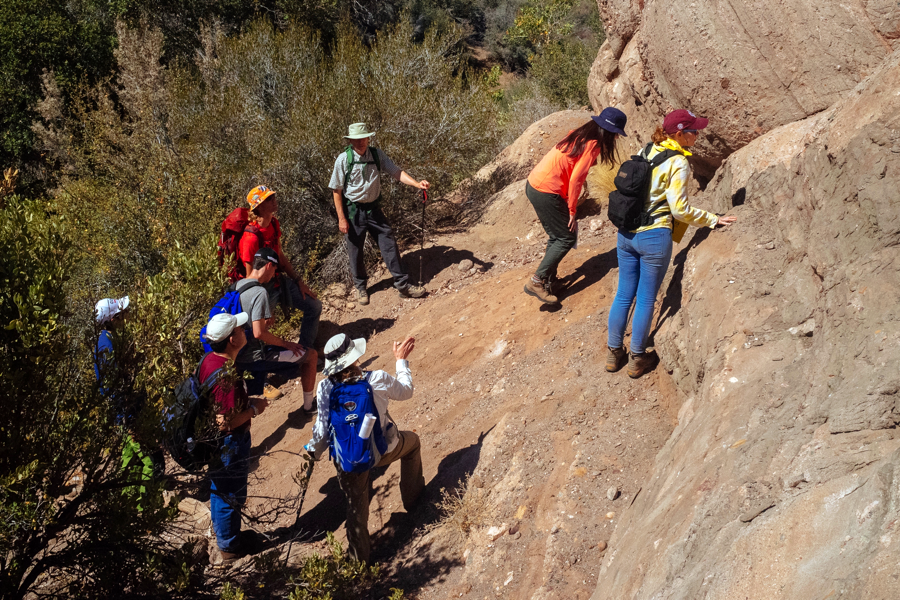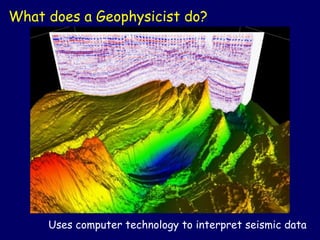All Categories
Featured
Table of Contents
Geophysicist Job Profile in East Victoria Park Aus 2023
This work is significantly contracted out, so consultancies supply another source of employment. Consultancy firms vary in size, from really small companies to large multinationals. Some consultancies are quite specialised in utilizing particular geophysical strategies or operating in particular places, while others offer a more varied range of services to their consumers.
The extraction of gas from landfill sites is another location of employment and this may grow in the future. Exploration business may undertake work for construction companies, public utility, mining companies and ecological agencies, so geophysicists might be used in any of these settings. Other companies include: geological surveysgovernment bodies and agenciesuniversities and research institutes.


Vacancies may be noted in the oil and gas sector press. Recruitment is impacted by oil price variations and the level of competition for positions differs depending upon this. Careers Days, which cover the complete variety of geoscience careers and are normally gone to by a variety of crucial market employers, are run by The Geological Society.
Why Study Geology? in Success Australia 2023
Some of the large oil and gas business provide a complete two-year structured training programme across the breadth of geophysics, including the chance to experience operate in various groups prior to specialising in one location. Your training may include work on: existing wellsmagnetic and gravitational prospective field data analysisresearchrock analysis. It's more usual for your preliminary training to be supplied on the task.

There may be a probationary period during which you work alongside an experienced coworker. Competency-based appraisals happen regularly in most firms. In smaller sized companies, and for scholastic posts, there is unlikely to be any formal training - you'll be anticipated to start work straightaway and choose up abilities as you go along.
If you work for a smaller business, you may discover that you need to take duty for arranging and moneying your own advancement and training. If you have a geology degree, membership of The Geological Society can be beneficial for networking and for maintaining to date with the industry.
Geophysics in Neerabup Oz 2020
You might likewise find it useful to join the PESGB (The Petroleum Exploration Society of Great Britain, which has a geophysics special interest group. After a probationary period, and when you have actually gained some experience, you might advance to senior geophysicist, then team leader and after that into a senior role in management.
The ease of movement in between functions depends upon the business structure. Research study at Masters or Ph, D level in a subject related to geophysics or geosciences might aid with your profession development and progression. The work market within the oil and gas industry is very depending on cost and this may affect your chances for career progression.
For skilled geophysicists, freelance consultancy offers a good route for profession advancement. As a geophysicist, you're likely to have a number of tasks throughout your working life.
Geophysical Investigations in Hilton Oz 2023
From geophysics, it's possible to concentrate on seismology (completing more training to end up being a seismic interpreter) or to move into associated locations such as engineering geology or risk forecast.
Choosing what to study in college is a difficult option. Even if you understand that your field of interest lies in science, what program of study is right for you?
The first step to achieving your goal of becoming a geophysicist is making a degree. Even for entry-level positions in the field of geoscience, you'll need a bachelor's degree (a geophysicist college degree) from a recognized college or university. Some research positions need prospects to hold master's degrees or perhaps Ph.
An Assessment Of Geophysical Survey Techniques For ... in Roleystone Western Australia 2023
Doctoral degrees are particularly important if you prepare to teach at a four-year organization. Geophysicists use physics concepts and strategies to study the gravitational, magnetic, and electrical fields of the earth. This furthers scientists' understanding of both the planet's interior core and its surface area. Geophysicists should be able to: examine rocks, photos, and other pieces of information conduct research both in the field and in labs produce maps and charts of their findings write reports To achieve all this, trainees need a specialized education for geophysicist professions.
As specified above, you'll require a bachelor's degree in geoscience or an associated discipline, such as a physical science or a natural science, to land an entry-level job. However students can also prepare by majoring in topics like: Biology Chemistry Computer system science Engineering Mathematics Physics The above geophysicist majors provide a more generalized approach to a single scientific discipline, but many programs require trainees to take several geology course.
Latest Posts
What Is Geophysics And What Do Geophysicists Do? in Sinagra Australia 2023
Geophysics in Beckenham Western Australia 2022
Geophysical Survey - An Overview in West Perth Oz 2020